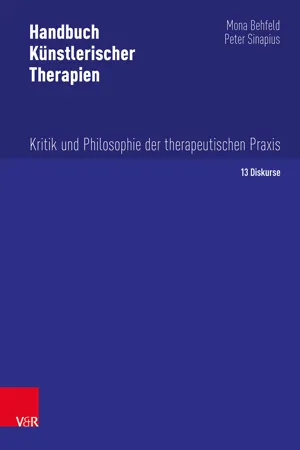
The 'New Testament' as a Polemical Tool
Studies in Ancient Christian Anti-Jewish Rhetoric and Beliefs
- 264 pages
- English
- PDF
- Available on iOS & Android
The 'New Testament' as a Polemical Tool
Studies in Ancient Christian Anti-Jewish Rhetoric and Beliefs
About this book
This volume contains papers on the ancient Christian use of potentially anti-Jewish New Testament texts. Martin Albl gives a general introduction to the opinions that ancient Christian authors held on Jews and Judaism. James Carleton Paget focuses on the Epistle of Barnabas and its critical position towards the Jewish religion. Wolfgang Grünstäudl discusses Justin Martyr's non-reception of two apparently anti-Jewish texts: Matt 27: 25 (»His blood be on us and on our children«) and John 8: 44 (»You are from your father the devil«). Harald Buchinger analyses Melito of Sardes' Paschal homily, in which the Jews are blamed for the death of Christ. Riemer Roukema and Hans van Loon investigate, respectively, Origen's and Cyril of Alexandria's use of NT texts in relation to the Jews and their Scriptures. Hagit Amirav and Cornelis Hoogerwerf focus on the form of polemical discourses in Diodore of Tarsus, Theodore of Mopsuestia, and John Chrysostom. Maya Goldberg studies Theodore of Mopsuestia's ideas on divine paideia in his commentary on Paulös epistle to the Galatians, and his view that the NT was intended to finalize – not replace – the Old Testament. Alban Massie focuses on Augustine's interpretation of John 1: 17, »The Law was given through Moses, grace and the truth came through Jesus Christ.« Brian Matz deals with Jesus' warning against the leaven, i.e. teaching, of the Pharisees (Matt 16: 6, 12), and Martin Meiser focuses on patristic reception of Matt 27: 25. By way of comparison with ecclesiastial authors, Gerard Luttikhuizen deals with the alleged anti-Jewish interpretation of Scripture in Gnostic texts. This volume demonstrates that potentially anti-Jewish texts were indeed used against Jews, but also toward Christians, sometimes without applying them to Jews.
Frequently asked questions
- Essential is ideal for learners and professionals who enjoy exploring a wide range of subjects. Access the Essential Library with 800,000+ trusted titles and best-sellers across business, personal growth, and the humanities. Includes unlimited reading time and Standard Read Aloud voice.
- Complete: Perfect for advanced learners and researchers needing full, unrestricted access. Unlock 1.4M+ books across hundreds of subjects, including academic and specialized titles. The Complete Plan also includes advanced features like Premium Read Aloud and Research Assistant.
Please note we cannot support devices running on iOS 13 and Android 7 or earlier. Learn more about using the app.
Information
Table of contents
- Title Page
- Copyright
- Body
- Riemer Roukema / Hagit Amirav: Introduction
- Martin C. Albl: Ancient Christian Authors on Jews and Judaism
- Hagit Amirav / Cornelis Hoogerwerf: Why Argue?
- Harald Buchinger: Melito, „Israel“ und die Bibel beider Testamente
- James Carleton Paget: Barnabas' anti-Jewish Use of Some New Testament Texts: Fact or Fiction?
- Maya Goldberg: Theodore of Mopsuestia on Divine Paideia
- 5. Conclusion
- Wolfgang Grünstäudl: Blutruf und Teufelskindschaft
- Hans van Loon: The Role of the New Testament in Cyril of Alexandria's Attitude towards Jews and Judaism
- Gerard P. Luttikhuizen: Anti-Judaism in Gnostic Texts?
- Alban Massie, SJ: Law vs Grace and Truth (John 1:17)?
- Brian J. Matz: “Beware of the Leaven of the Pharisees”
- Martin Meiser: Matt 27:25 in Ancient Christian Writings
- Riemer Roukema: Origen, the Jews, and the New Testament
- List of Abbreviations
- Index of Ancient and Modern Authors